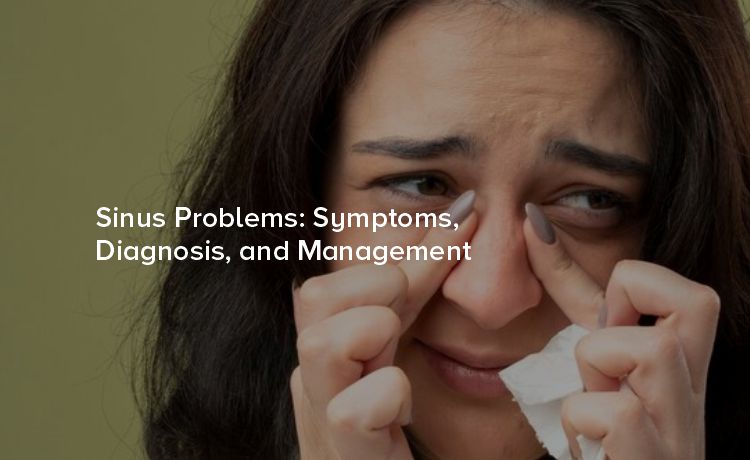
Sinus problems are more than just a seasonal inconvenience—they can significantly impact your quality of life. If you’re someone who faces frequent sinus issues, you're not alone.
Sinus problems refer to any condition affecting the sinuses, the hollow cavities in your face that produce mucus. These issues can range from mild discomfort to severe, chronic pain. Understanding the basics is the first step in effectively tackling this common ailment.
Sinus problems can be broadly categorized into acute, subacute, chronic, and recurrent sinusitis. Acute sinusitis is a short-term condition that usually lasts less than four weeks. Subacute sinusitis lasts between four to twelve weeks. Chronic sinusitis extends beyond twelve weeks, while recurrent sinusitis refers to multiple episodes within a year.
Common Symptoms
Symptoms vary depending on the type and severity of the sinus problem but often include facial pain, nasal congestion, and a reduced sense of smell. Other signs can include headaches, fatigue, and even dental pain. Recognizing these symptoms early can lead to more effective treatment.
Several factors contribute to sinus problems, including allergies, infections, and structural issues like a deviated septum. Environmental factors such as pollution and smoking can also aggravate sinus conditions. Understanding the root cause is crucial for effective treatment.
If you suspect you have sinus problems, a proper diagnosis is essential. A healthcare professional can offer various diagnostic tools to identify the issue accurately.
A thorough medical history and physical examination are usually the first steps. Your doctor will ask about your symptoms, their duration, and any triggers you may have noticed. They will also examine your nose and throat for signs of inflammation.
Imaging Tests
In some cases, imaging tests such as X-rays or CT scans may be needed to get a detailed view of your sinuses. These tests can help identify blockages, structural abnormalities, or other underlying issues contributing to your symptoms.
Allergy Testing
Allergies are a common cause of sinus problems. Allergy testing can help pinpoint specific allergens that may be triggering your symptoms. This information can guide your treatment plan, making it more effective.
Once diagnosed, the focus shifts to managing and treating sinus problems. The goal is to alleviate symptoms, treat the underlying cause, and prevent future episodes.
Various over-the-counter medications can relieve sinus symptoms. Decongestants help reduce nasal congestion, while antihistamines can alleviate allergy-related symptoms. Always consult your healthcare provider before starting any new medication.
For more severe cases, prescription treatments may be necessary. These can include antibiotics for bacterial infections, corticosteroids to reduce inflammation, and antifungal medications if a fungal infection is present.
Simple home remedies can also be effective in managing sinus problems. Regularly rinsing your nasal passages with a saline solution can help clear out mucus and allergens. Inhaling steam and using a humidifier can also provide relief.
Making certain lifestyle changes can significantly impact your sinus health. These adjustments can help manage symptoms and prevent future issues.
Staying hydrated is essential for maintaining healthy mucus production. Drink plenty of water and include hydrating foods like fruits and vegetables in your diet. Avoid dairy products if they seem to exacerbate your symptoms.
Regular exercise can improve your overall health and boost your immune system, making you less susceptible to infections. Just be mindful of your environment; exercising in polluted areas can worsen sinus problems.
Identifying and avoiding triggers can prevent sinus problems from recurring. Common triggers include allergens like pollen and dust, irritants like smoke, and even certain foods. Keeping a symptom diary can help you identify your specific triggers.
While many sinus problems can be managed with over-the-counter treatments and lifestyle changes, some cases require professional intervention.
If your symptoms persist despite treatment, or if you experience severe pain, fever, or vision problems, it’s time to see a specialist. An otolaryngologist, or ENT doctor, specializes in diagnosing and treating sinus problems.
A visit to a specialist will involve a more detailed examination and possibly additional tests. The specialist may recommend procedures like endoscopy or surgery to address severe issues. They will also provide a comprehensive treatment plan tailored to your needs.
Chronic sinus problems often require long-term care. This can include ongoing medication, regular check-ups, and possibly lifestyle changes to manage symptoms. Your specialist will guide you through this process, ensuring you receive the best care possible.
Advancements in technology have revolutionized the diagnosis and treatment of sinus problems. From innovative surgical techniques to cutting-edge diagnostic tools, technology plays a crucial role in modern sinus care.
Advanced Diagnostic Tools
Modern imaging technologies like 3D CT scans provide detailed views of the sinuses, enabling accurate diagnoses. These tools can detect issues that traditional methods might miss, leading to more effective treatment plans.
Minimally Invasive Procedures
Minimally invasive surgical procedures, such as balloon sinuplasty, offer effective solutions with shorter recovery times. These procedures are less painful and have fewer risks compared to traditional surgery, making them a popular choice for many patients.
Preventative care is key to managing sinus problems effectively. By taking proactive steps, you can reduce the frequency and severity of sinus issues.
Regular Check-Ups
Regular check-ups with your healthcare provider can help monitor your sinus health and catch potential problems early. Early intervention can prevent minor issues from becoming major ones.
Vaccinations
Vaccinations against common infections like the flu can reduce your risk of developing sinus problems. Talk to your healthcare provider about which vaccinations are appropriate for you.
Healthy Habits
Maintaining healthy habits such as a balanced diet, regular exercise, and good hygiene practices can significantly impact your sinus health. These habits strengthen your immune system, making you less susceptible to infections.
Professional Help
Don’t hesitate to seek professional help if you’re struggling with the emotional impact of chronic sinus problems. Mental health professionals can offer strategies to cope with the stress and anxiety that often accompany chronic conditions.
Sinus problems are a common but manageable issue. By understanding the symptoms, seeking a proper diagnosis, and following an effective treatment plan, you can significantly improve your quality of life.